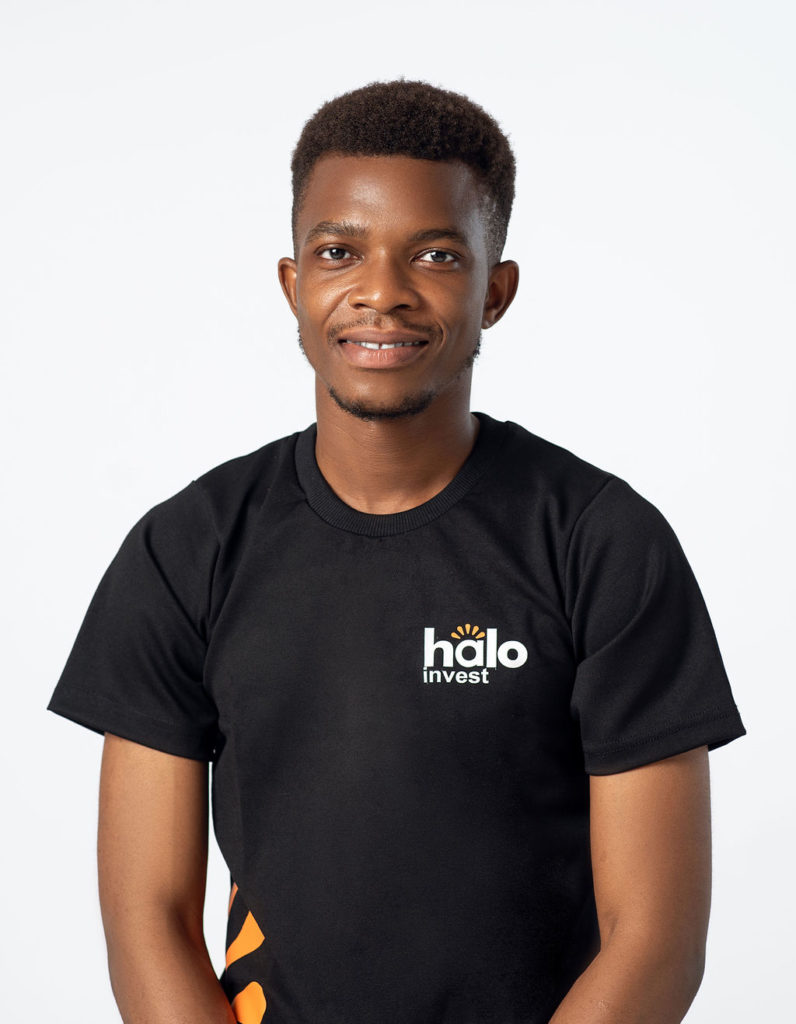
Building a product in any sector is hard work, so, a certain level of know-how, grit, and patience is required. A brilliant team of Nigerian developers, over the past few months have brought all these attributes (and a few more) to the build that helps make Halo Financial Services one of the best solutions on this side of the world. Halo offers banking, investments, and other financial services as a service to communities and organisations. It has been an intense but rewarding process working with local talent to deliver this product. I thought to share some observations and explain why this experience has cemented my belief that building products for Nigerians is a job best done by Nigerians.
Usually, when an organisation or individual with a business idea wants to create technology to deliver it, what they do is bootstrap. Basically, that means picking the crucial components of the idea that technology can deliver and then piecing together the required technologies. Components could be a website, an automated mailing system, something that allows for advertisement, or a tool that helps with the conversion – an avenue through which the customers can come into the business and maybe interact.
I’ve noticed that some Nigerian tech start-ups choose to outsource these processes to Asian or European developers. These people are technically proficient but lack the context of the Nigerian market. And context matters, even in when it comes to building tech. Especially when it comes to building tech. For example, I worked on a project for a transportation application outsourced to Estonians. This is particularly funny because Estonia does not operate public transportation the way Nigeria does. So, as much as those developers could apply data structures and algorithmic thinking, they couldn’t program effectively because they lacked the context to understand how the technology needed to be used in Nigeria. We had to restart the project, and we had to spend twice to deliver the technology required to push that business forward. The extra cost and the time wasted would put anybody off.
It’s important to note that for a start-up, ideas are universal. When there is an idea in the atmosphere, it does not belong to just one person. It is in the ether; anybody can pick it up and start working on it. And if an individual is not fast enough to work on that idea and take it to the market, it might be too late. Someone else might be working on it without either of them knowing. So, when technology must be rebuilt because it doesn’t deliver to the specifications needed for it to operate within our market, time and money are wasted. Other time-wasting factors include conversion of the currency, the time of delivery, and communication barriers.
Bootstrapping in Halo
What we did at Halo was acquire local talent. This is not referring to their capacity as individuals, but their accessibility. We believe having people you can see, and technology tools and processes that you can manage hands-on will affect how effectively and quickly you can deliver. They also have a good idea of what it takes to try to solve an investment process in Nigeria; how the regulatory bodies and the banking system work, and the fintech add-ons you would integrate with businesses like Paystack and Flutterwave, for example.
That we are Nigerian engineers building for our local market makes us more effective. First, fintech in Nigeria leads the world in terms of technology. Nigeria is such a challenging environment, that the level of skill required to bypass the challenges actually puts our guys up there with the best. Second, the turnaround time is shorter for situations such as detecting and fixing a bug or coming up with a feature and implementing it. The time from ideation to market, acceptance and that cycle over again is also greatly reduced. We can quickly build software, ship to the market, take feedback, refresh our processes, build software, and go to the market again. Another key advantage? Whenever there’s a new regulation or directive that upset our processes, our developers are on stand-by to immediately effect the necessary changes. And because we know this market, and expect last-minute changes, we are flexible enough.
Of course, there are challenges with building with local talent in Nigeria. I want to share how we worked around some of them. The first challenge is the scarcity of quality talent. It can take several rounds of interviews to find, attract, and hire qualified hands to join an engineering team. Eventually, we got the best results by leveraging our individual networks. Most of our developers have worked with someone on the team somewhere else. Halo gets recommendations from within the ecosystem, and we are sure the talent are capable professionals with hands-on experience with similar projects.
Speaking of the scarcity of talent, this leads me to the second challenge: the attrition rate. This is partly due to the great migration of talent. To combat this, we try to make benefits and remuneration as attractive as possible. Some benefits include professional training to help them up-skill and offering them opportunities to buy into Halo’s objectives. Another challenge was infrastructure (power and internet data) for engineers working remotely. We make available the best work tools and functional working spaces for our developers on-site and provide whatever assistance they may need while working remotely.
Halo: A Different Approach to the Fintech Space
Halo brings something different to the market than many of our peers. What we often see in the fintech space is solutions targeted at individual customers. Halo targets communities. We believe there’s strength in numbers and that you get further when you do things together. So, our platform rewards people for saving and investing as communities.
For our operations, these communities can also serve as representatives for us, meaning that they can fast-track the way we solve issues and the way we onboard.
In doing our research, we recognised that people have different requirements when it comes to access. And it has more to do with their level of tech literacy, ability, and willingness, to use technology than income. That is a nuance that might be difficult to pick up if you aren’t local. There are people, for example, successful traders, who from an income perspective are affluent, own a smartphone, are proficient enough to use the technology but prefer face-to-face interactions.
Our market insight led us to build an online/offline distribution model unlike the ‘all digital’ offering that’s more common among fintechs. For people who are less technologically inclined, and who prefer transacting face to face with people they know, we have Halo Direct. We leveraged the broad base of agent networks already in the market and enabled those agents with our technology. With the Halo Direct application, an individual can manage the accounts of several other customers. For people who are comfortable using apps and would rather self-service, we have a mobile app called Halo Invest. People find our app easy to use because we did our research upfront. We wanted to ensure we built something stress-free to use from onboarding through investing and eventually taking their money out. For wealthier clients whose funds will be managed by a wealth manager, what they really need is a monitoring tool. So, we have another app in the works.
In a nutshell, building anything worth its salt in Nigeria can be a challenging process. However, one way to lighten the burden is to trust our local talent to do the job. They not only can relate to how the problem affects the target population but can also understand and maneuver the intricacies involved with solving the problem. After all, a Yoruba adage translated to English says, “What you’re looking for in Sokoto is inside your sokoto.” Sokoto is a state in Nigeria, sokoto (pronounced shokoto) is trousers in Yoruba. It simply means what you search for on the outside of yourself is close by, waiting to be discovered and optimised.
Written by Tomiiwo Fakinlede, CTO, Halo Financial Services


















